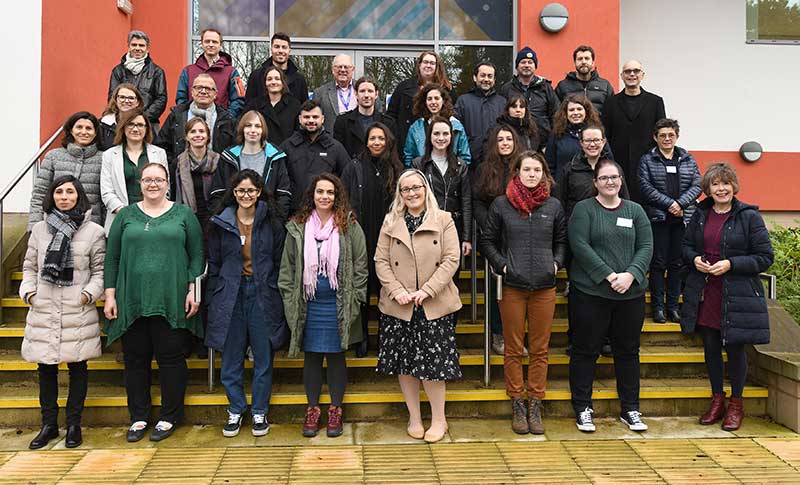SeaChanges network launched at York
Posted on Wednesday 5 February 2020

SeaChanges is an international doctoral training network funded by the European Union’s Horizon 2020 research and innovation programme under the Marie Skłodowska-Curie actions (MSCA), spanning archaeology and marine biology and supporting 15 fully-funded PhD projects across seven institutions in six countries. The network takes a long-term perspective on human exploitation of marine vertebrates, with projects covering species from herring to sperm whale, timescales from decades to millennia, and all of Europe's seas and beyond.
SeaChanges brings together experts from seven leading institutions in archaeology, zoology, marine ecology & conservation biology, led by the University of York in partnership with the University of Groningen, University of Cambridge, University of Oslo, University of Copenhagen, University of Bologna and CSIC - IMM. It will provide state-of-the-art training to forge a new generation of interdisciplinary researchers able to operate at the interface of archaeology and marine biology, with the skills required to fully realise the potential of archaeological remains to understand past marine resource use, assess past impacts, and use these to inform the present.
48 people from across the SeaChanges network gathered in York for the launch event of the programme from Tuesday 6th - Saturday 10th January 2020, which was a huge success. Attendees included the PhD students and supervisors from the various institutions and representatives from some of our wide network of partner organisations. The event included a kick off meeting to introduce the programme and meet the other attendees, followed by a three-day workshop for the students covering bioarchaeological methodologies. Inspirational keynotes from leading researchers in the fields of history, archeology and marine conservation biology, Poul Holm, Naomi Sykes and Callum Roberts provided an insight into the current landscape for the network’s research. Six further workshops will be run across the seven institutions over the next three years providing training including marine ecology, data handling, outreach and archeological sampling.
Learn more on the SeaChanges website.

This project has received funding from the European Union's Horizon 2020 research and innovation programme under the Marie Skłodowska-Curie grant agreement No. 813383
